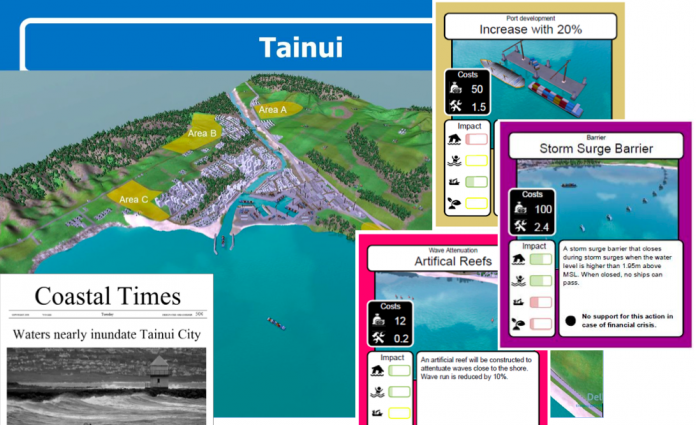By Simone De Kleermaeker*
Water management is increasingly challenged by pressures such as population growth, sea level rise and climate change. Given the uncertainties about the future, how do you create a sustainable water management plan? Different stakeholders have different perspectives and priorities. How do you gain insight into this and create a plan that can count on broad support? Only by engaging stakeholders in exploring different adaptation pathways together can you prepare for an uncertain future.
Why not tackle this serious topic with a game? A game allows all involved parties to come together for a discussion within a safe environment. It’s only a game after all. Play with the different stakeholders around the table, or use role play techniques to give a voice to all involved parties. Are the ideas and wishes around the table really so different or can they complement each other? Together we can find ways to make smarter investment decisions given the different requirements and an uncertain future.
The goal of the Sustainable Delta game is for two teams to develop and implement a Sustainable Water Management Plan for the coming 100 years in the fictional setting of the Tainui Harbor. This is an urban coastal harbor similar to those found in New Zealand. Key (conflicting) issues include coastal inundation, port and transport capacity, nature and the environment.
This game has been played over 50 times in different settings, with water managers, spatial planners during project workshops and with students at international conferences all over the world.
Players feedback include remarks on how they aimed to be proactive, but in the end seemed to only react to events and how experiencing uncertainty due to climate variability in the game opened their eyes. “We are reactive if we do not understand the system well. This is what we see in reality as well.” By discussing and exchanging views and ideas participants learn to find an integrated solution to a complex and uncertain problem.








